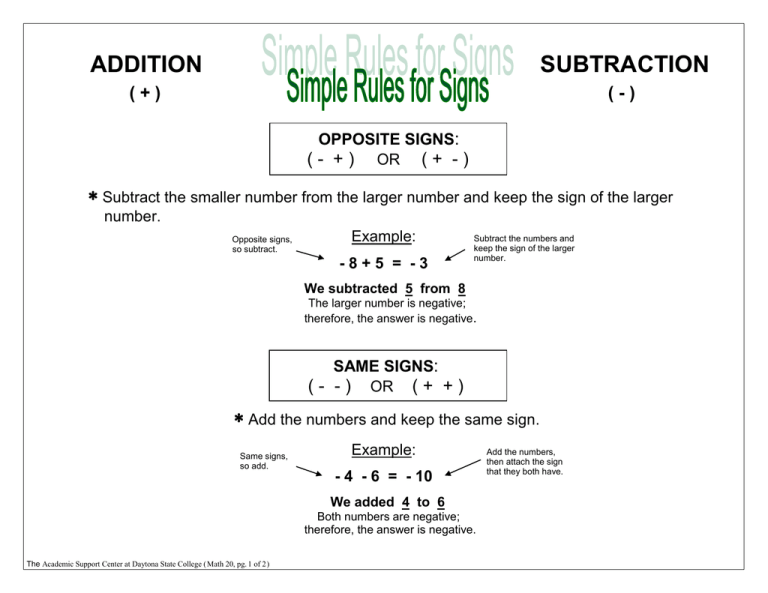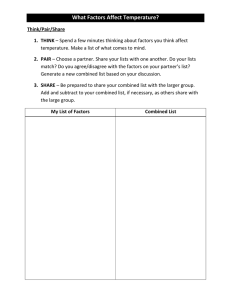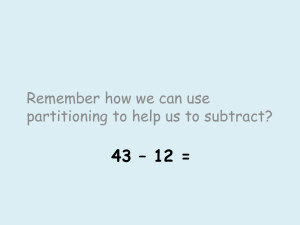ADDITION SUBTRACTION
advertisement

ADDITION SUBTRACTION (+) (-) OPPOSITE SIGNS: ( - + ) OR ( + - ) Subtract the smaller number from the larger number and keep the sign of the larger number. Opposite signs, so subtract. Example: -8+5 = -3 Subtract the numbers and keep the sign of the larger number. We subtracted 5 from 8 The larger number is negative; therefore, the answer is negative. SAME SIGNS: ( - - ) OR ( + + ) Add the numbers and keep the same sign. Same signs, so add. Example: - 4 - 6 = - 10 We added 4 to 6 Both numbers are negative; therefore, the answer is negative. The Academic Support Center at Daytona State College ( Math 20, pg. 1 of 2 ) Add the numbers, then attach the sign that they both have. Addition / Subtraction OPPOSITE SIGNS ( - + ) OR ( + - ) Subtract the smaller number from the larger number, and keep the sign of the larger #. Examples with answers: - 10 + 20 = 10 10 - 20 = -10 SAME SIGNS ( - - ) OR ( + + ) Add the numbers, and keep the sign that they have in common. Examples with answers: - 7 - 9 = - 16 7+9 = 16 - 30x + 12x = -18x - 11x - 4 x = - 15x - 5x2 + 2x2 = - 3x2 x2 + 9x2 = 10x2 14xy - 6xy = 8xy 8q + 14q = 22q - 3z + 13z = 10z - 3rs - 20rs = - 23rs 4t - 5t + 7t = 6t - 10w - 2w - w = - 13w Working two terms at a time, note that the numbers 4 and 5 have opposite signs, so subtract to get -1. The opposite-signed numbers -1 and + 7 will subtract, resulting in the solution + 6t. The Academic Support Center at Daytona State College ( Math 20, pg. 2 of 2 ) Beginning with the first two terms, notice that the numbers 10 and 2 have the same sign (negative in this case), so add to get -12. Add the numbers -12 and -1 to get -13 (Note: There is an understood 1 in front of the w, as in - 1w). JCM

